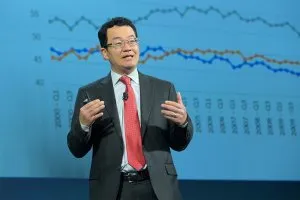Perspectives from Patricia Tan, CIPS, Coldwell Banker Residential Real Estate, Sarasota, FL
Patricia (Pat) Tan has spent the past 13 years in global real estate. She travels extensively, and her trips often involve exhibits at property shows and hosting seminars for people who may be interested in international real estate. The following are some of her thoughts on what’s been most effective in building her global practice.
Pat relies heavily on face-to-face marketing.
“It’s very powerful. It’s also very expensive. To get a strong return on your investment, you need to do it right.” That includes:
Sell your location. Tan is on the west coast of Florida, so she competes most directly with Orlando and the east coast. In addition, when she is overseas, she also competes with resort destinations in Spain and France. “Interestingly, the house itself is almost an incidental detail,” says Tan. “In global real estate, it’s much more about what your market offers.”
Since listings take a backseat to the general area, a real estate agent who wants to attract global buyers to their market needs to think like a representative of their local tourist board, or the department of economic development.
Before attending a trade show, prepare materials that highlight unique and attractive attributes of your area. One of the worst things you can do at an international event is walk around passing out flyers for a particular property. No one will buy a house, based solely upon a flyer! First, they need to be interested in your market—and you, as a representative of that market.
Don’t sell yourself. It’s certainly true that global buyers want to identify and work with experts who understand international real estate. Explaining your specialized training, as a CIPS designee, is an excellent way to do this. However, it’s also important to remember that, in many cultures outside the U.S., it’s considered quite brash to brag about yourself, especially if you’ve just been introduced.
Instead, this should be done in a more incidental way, by including CIPS credentials on your business cards and marketing materials, as well as using the new flyers for CIPS designees (see pages 4-5). Also learn how to ask good questions, since this indirectly demonstrates your knowledge, while also showing genuine interest in the other person.
Listen and educate. Buyers often express interest in global real estate, but also concern over various issues, such as taxes and visas. For example, international buyers tend to think they can only stay in the U.S. for 90 days. “If they mention this, I’ll explain there are ways to reside in the U.S. for up to six months, by securing a B1 (business) or B2 (pleasure) visa,” says Tan, who is also a CIPS instructor. While it’s safe to let clients know there are visa options, make sure you refer them to a reputable immigration attorney for immigration- related advice.
It’s an educational process that involves helping buyers understand what’s involved in purchasing real estate and building their confidence. Of course, as you help buyers become more confident about moving forward, they’ll also feel more confident about working with you, and actually signing a contract.
Professional Networking
While traveling, it’s also important to meet CIPS designees in other countries and hear their perspectives of what their clients want and need. The more you cultivate your relationships, the more likely your name will be remembered for future referral opportunities.
Regardless of HOW you’re networking (in person, online, etc.) and WHO you’re networking with (clients or other CIPS designees), it’s essential to be an authentic networker. Make a genuine effort to get to know others—and to assist them with your own knowledge. This approach always wins better results, no matter where you go, across the globe.)
Paid (and Free) Advertising
Since it can be very expensive to run advertisements in publications out- side the U.S., Pat Tan only makes very selective use of this marketing tool, reserving it for her prime audience— buyers from the U.K. and other parts of Western Europe. For example, she’ll wait until the U.K.’s Sunday Times is running a feature on Florida. This way, she knows readers are already interested in her market and potentially more likely to notice and read her ad.
She also makes use of free publicity, whenever possible, by offering to provide quotes that will appear in articles. Of course, being a regular advertiser improves the likelihood of developing this type of arrangement. For example, Tan consistently places ads in the British magazine, A Place in the Sun, and is also frequently quoted in their articles about Florida’s west coast.
Tan also offers to write articles for other publications, which is another excellent way to earn free publicity and build her reputation as an authority on her market and an expert in international real estate.
Work the International Crowd, Without Paying for It
You don’t have to invest in expensive property portals to showcase your listings to the world—you just need your listings to appear on realtor.com ®, where they’re already translated and can be syndicated to more than 72 countries. There is no charge for this service!
All U.S. listings on realtor.com® (from MLS feeds) automatically appear on realtor.com/international. If you live or have listings outside the United States, check with your national association to see if they aggregate to realtor.com®.
Realtor.com/international attracts over 1 million views per month from countries all over the world, and offers translation, currency conversion, and metric measurement conversion. Its newly-formed Global Property Network provides exposure to 16 leading international real estate sites in 72 countries—at no cost.
Non-U.S. listings are already syndicating to the network. For U.S. listings, talk with your broker about syndicating on the Global Property Network. To share your listings, they just need to create a free listhub.com account, or log in with an existing one, and push a button. (We’d do it for you, but you own your listings and the right to choose where to syndicate.)








